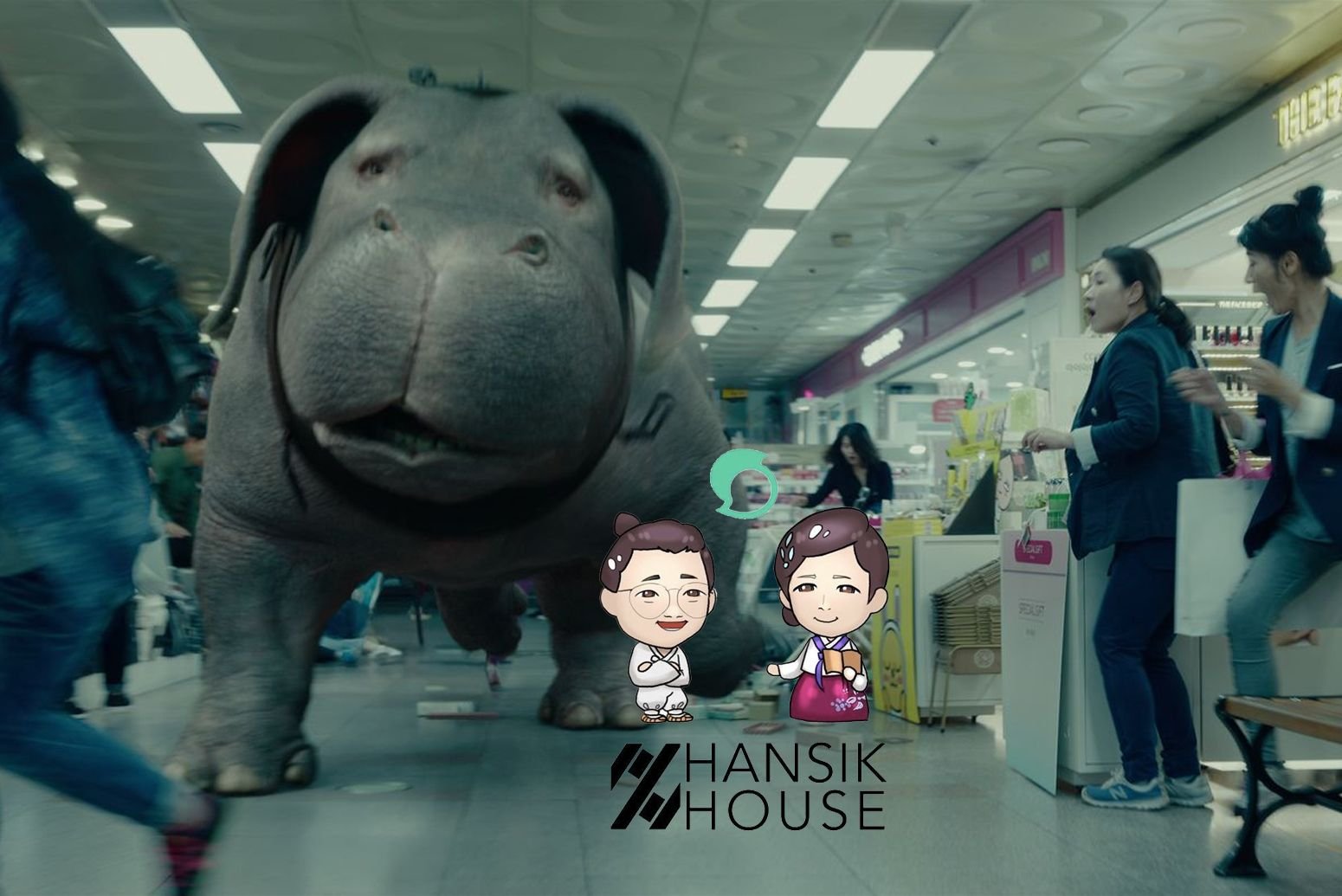
Not your typical Korean BBQ…
The wife and I finally got around the watching the movie Okja this holiday. It’s been a long time coming and I’ve briefly skimmed over dozens of rave reviews from both American and Korean critics. It isn’t often that American movies spend a good chunk of film estate on Korean soil (I think one of the last Ironman or Avengers movies was momentarily shot on the Han River?) so I made sure to check it out on Netflix.
If you haven’t seen it, I highly recommend you do. And I won’t get much deeper in any ‘review’ for today. Instead, I wanted to write about one unique aspect of the movie that I latched onto. No worries, no spoilers.
The Asian Hollywood Conundrum
It’s a bit of a catch-22 to cultivate some Asian presence in American-based global media. On one hand, foreign actors, no matter how talented in their own right, have a very difficult time finding roles in mainstream American movies. The biggest obstacle is the language barrier. This is why you typically see Asian depict either really silent fighting characters or pseudo alien/robotic forms of sentience. Either that, or you have to wait for the next Batman or 007 movie where someone from Hong Kong can play the evil billionaire.

Lee Byung Hun in G.I. Joe. Source: allkpop
Inversely, American-born actors and actresses have a difficult time portraying any convincing role that requires them to appear more “asian.” Even non-asian audiences can somewhat tell that they’re not fluent in the foreign tongue and their whole persona just seems like a poorly Photoshopped character on an alien backdrop.
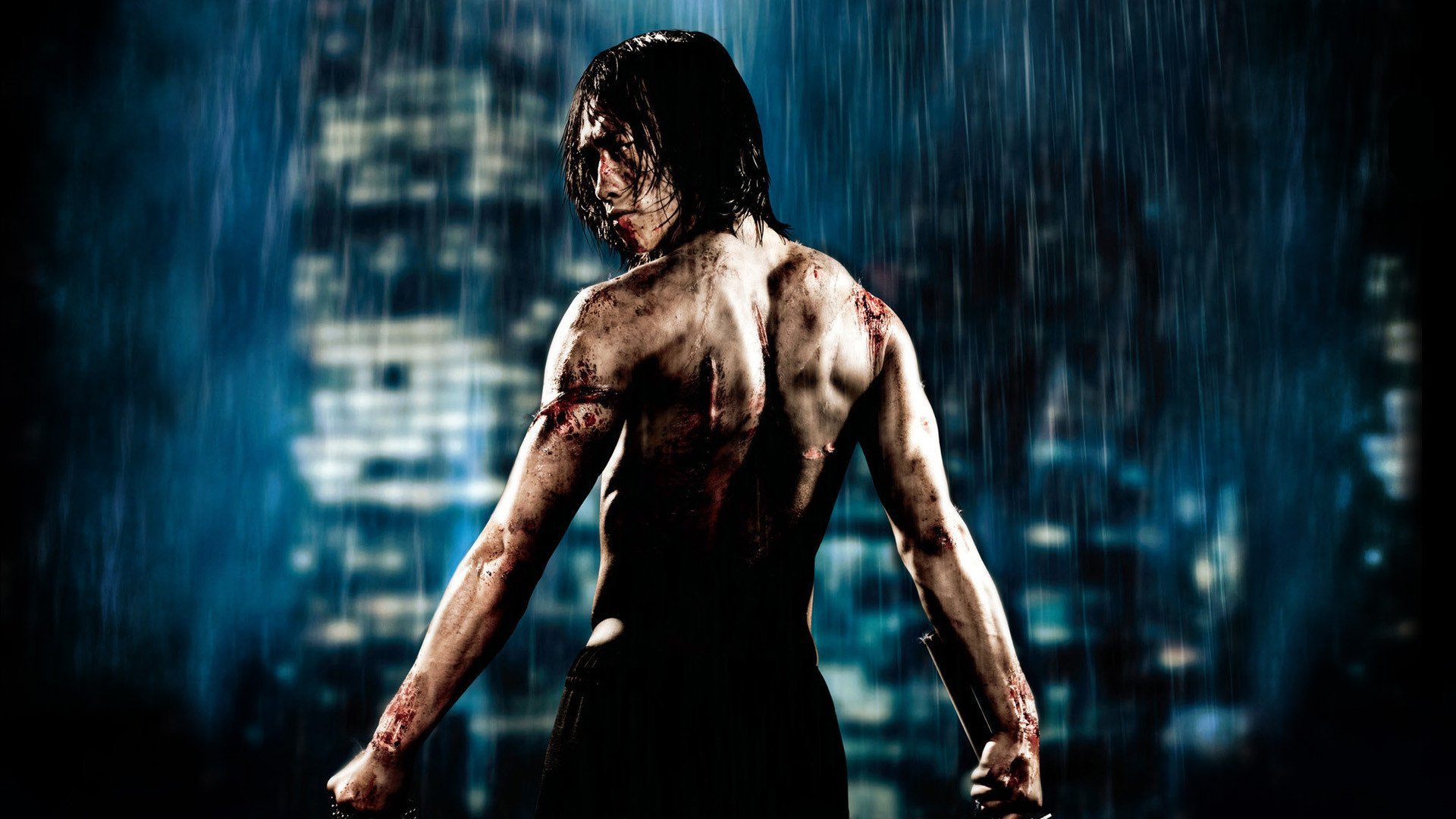
RAIN in Ninja Assassin. Source: Alpha Coders
A cultural presence is not just determined by looks and language. I think global audiences understand this and probably the reason why you don’t have many asians acting our character of different asian ethnicity. This friction between what is what in the world of movies and TV has caused asian actors and actresses to be mostly left behind.
Successful Strides
Now there are a few instances where actors almost achieved a compelling harmony of identity between the East and West. In particular, American-born performers are carving out a new space for those with a unique blend of experiences that is hard to define.

Source: Desktop Wallpapers
Probably the most recognizable Jin from the mega-series Lost. Actor Daniel Dae Kim is amongst the first Korean-American actors to take to the mainstream, portraying a Korean man of humble rural origins that eventually becomes bodyguard and lover to a corporate Korean princess. A great many of Jin’s flashbacks were set in Korea and his American accent was palpable to even non-Korean speakers. But still, to this day, most Americans will think of Jin when the topic of K-actors is brought up.
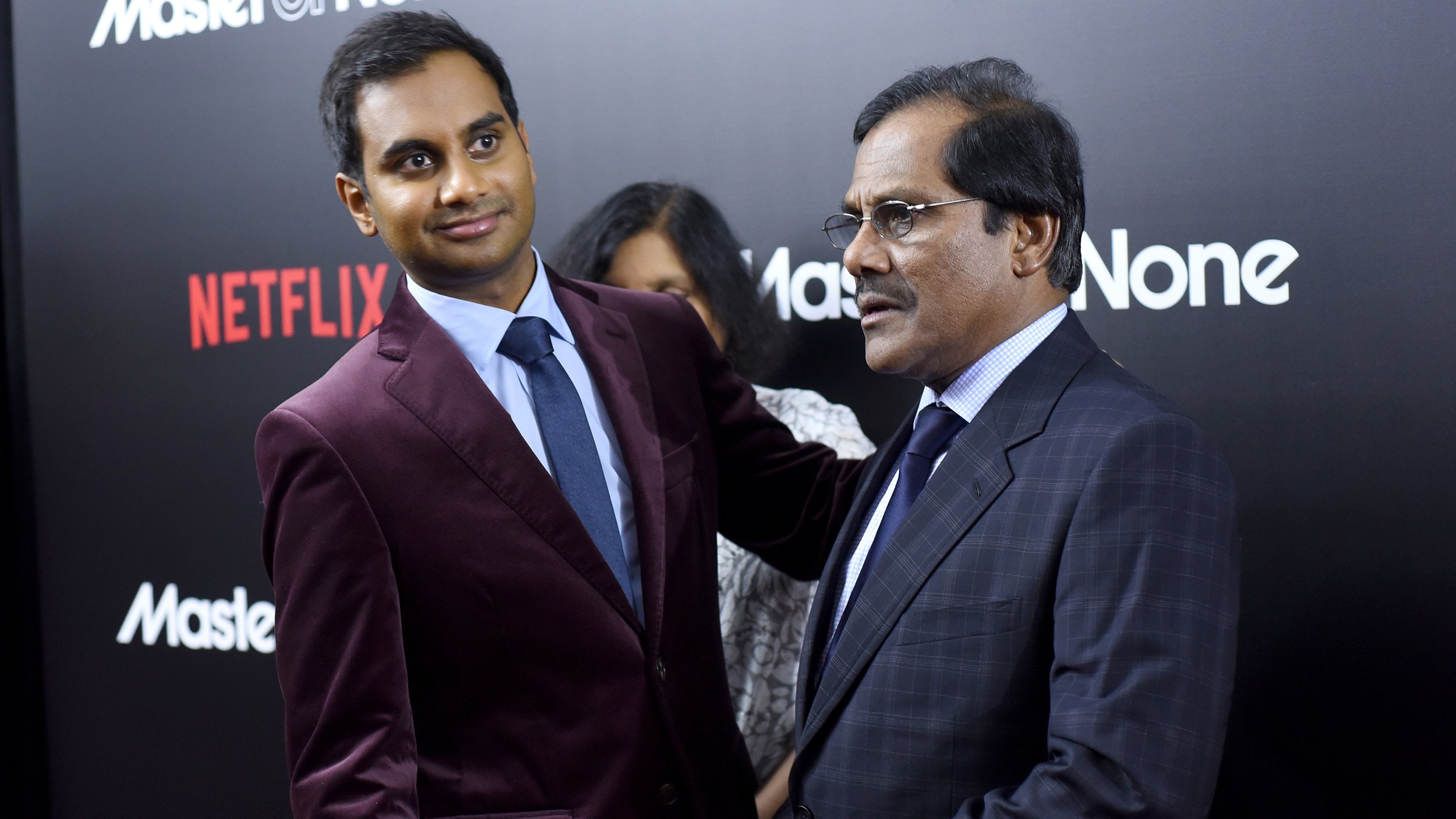
Source: The Today Show
Aziz Ansari was one of the first to narrate the modern experience of Asian-Americans. His acclaimed Netflix show “Master of None” is partially centered around his torn identity. The show is very explicit at times about the cultural friction between him and his parents and Ansari takes pride in the show being very accurate emotionally to his own life.
And now, we go full circle to the cover picture and original topic, Okja and one of its key actors -
Steven Yeun in Okja
Steven Yeun is unequivocally best known for his role as ‘Glen’ in The Walking Dead television series. He’s highlighted as one of the more inquisitive Asian actors and consistently tries to bridge the Pacific between Korean and American audiences. Korean-Americans (KAs) typically shy from these opportunities as it puts tremendous pressure on them to overcome a litany of unforeseeable cultural barriers. When KAs do manage to bridge the gap, they’re often susceptible to bad press, making mistakes, and overall being very self-conscious about their standing in authentic Korean media which is a whole different jungle.

Source: The Geekiary
But Yeun has taken a different, more rooted approach. He, in what seems to be a fairly humble personality, fully embraces his awkwardness in the Korean sphere. His self-deprecating demeanor is telling of his awareness that he his indeed a foreigner even if everyone else looks similar. One lucky aspect is that the show The Walking Dead is not very popular at this moment in Korea, whose audiences prefer fast-paced and over-dramatized narratives. This prevents Yeun from having too much of a chip on his shoulder.
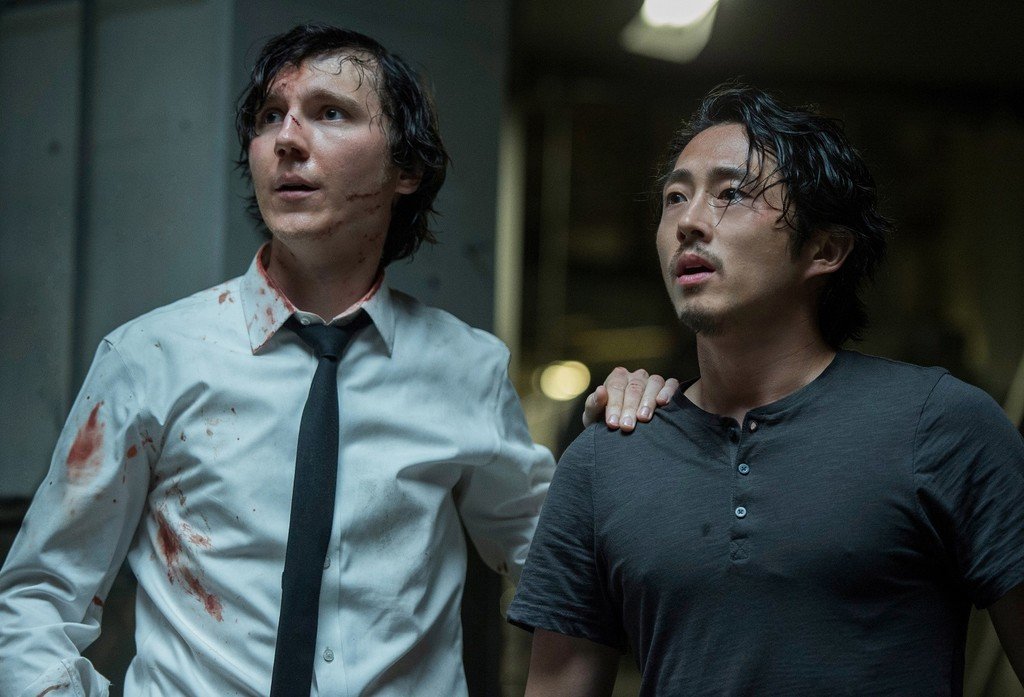
Source: blogs.es
What’s especially great about his actor is that this humility bleeds into his roles and characters. His protagonist in Okja is exactly him - a Korean-American that is willing to traverse both cultures but is self-admittedly lacking in terms of cultural know-how and language. He is a Korean-American with a knowing heavy emphasis on “American.”
This is really refreshing, especially after seeing actor after actor after actress after actress trying to break into the American mainstream by pretending to be something they’re not. Koreans will have to establish a unique role for themselves in global media without the help of dubbed subtitles and I believe that Steven Yeun’s authenticity is a step in the right direction.
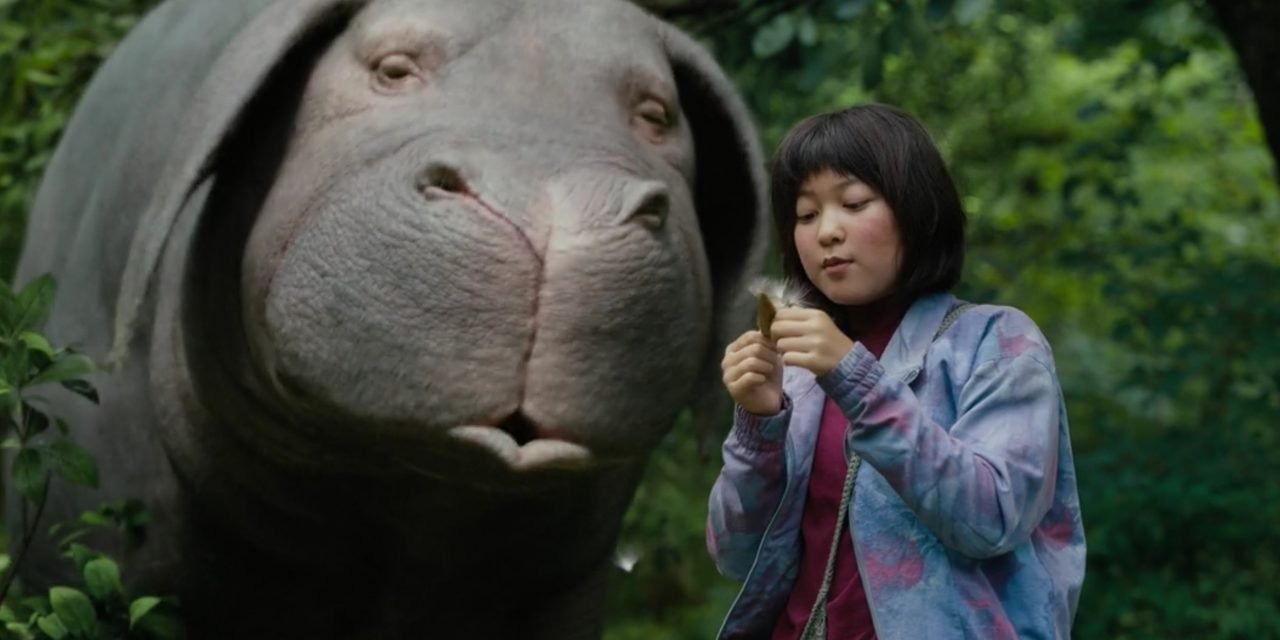
Source: Live Kindly
Also, great movie. Definitely worth a watch this holiday!

